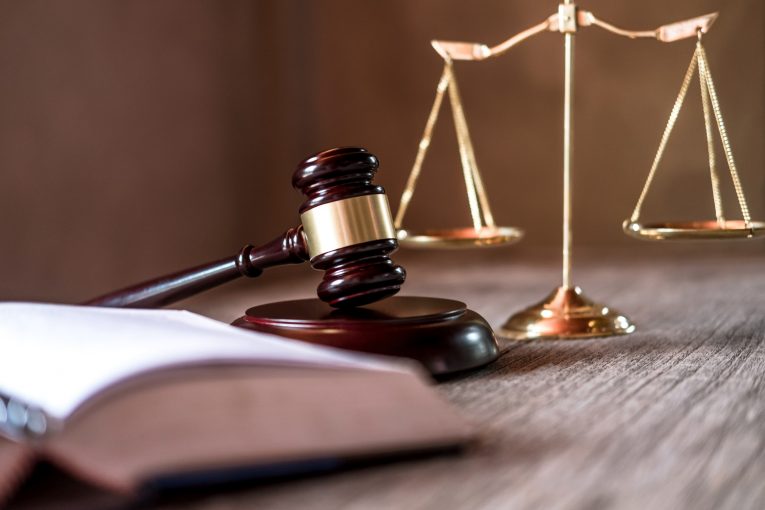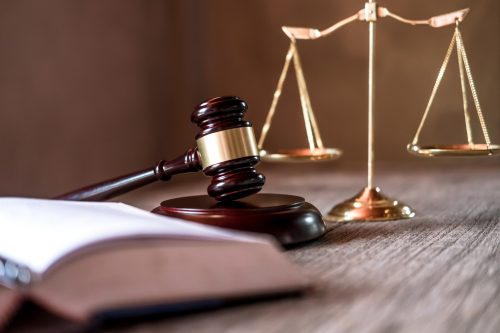

By Crescenzo Vellucci
The Vanguard Sacramento Bureau
SACRAMENTO, CA – A man wrongly convicted because of alleged prosecutorial misconduct, and a law professor frustrated by attempts to have the same prosecutor disciplined by the CA State Bar are featured in videos released this week by the same criminal justice reform group that earlier this month published a detailed report critical of California prosecutors.
In the first video, Jamal Trulove of San Francisco talks about his wrongful conviction that led to a 50 years-to-life sentence – he was later freed and won a $13.1 million civil suit. See Jamal Trulove Video
A second video features University of San Francisco Law Professor Lara Bazelon, who comments on her failed attempts to discipline a prosecutor who committed “proven misconduct.” See Lara Bazelon Video
“It Could Happen To You” (ITCHY) released “CALIFORNIA REPORT ON PROSECUTORIAL MISCONDUCT” (See the report) earlier this month, summarizing 16 cases in which California courts have either exonerated individuals or ordered new trials as a result of the misconduct of prosecutors.
The comprehensive, 43-page report charged “misconduct by prosecutors is largely unregulated in California, despite thousands of claims of prosecutorial misconduct over the past few decades that led to people to be wrongfully convicted and incarcerated for years, including some on death row.”
ITCHY is a criminal justice policy reform coalition that focuses on wrongful prosecutions and prosecutorial misconduct.
Trulove begins his video interview stating, “I was framed for murder.” He explains there was “no forensic evidence at all” used to convict him, and that the sole witness was “coerced by police.”
Trulove charged it was “prosecutorial misconduct…how the prosecutor spoke (to) witness about fear of her life,” adding there was “no threat to her life….(but) it can inflame jury to come up with conviction.”
“She (the witness) in the second trial…stated it (fear) came from what she saw in movies and TV. The state bar and supreme court did nothing about prosecutorial misconduct…we (need something) commission to hold people accountable at the end of the day,” Trulove said.
USF Law Prof. Bazelon expressed more than a little frustration at not being to discipline Linda Allen, whom she accused in the video of “misconduct” for “making up a story because her case was so weak” against Trulove.
In fact, adds Bazelon in her ITCHY video, there was not a “scintilla of evidence (Truelove) ever threatened” the witness, which Bazelon called “highly prejudicial…Linda Allen had to have known” was false. Bazelon also accused Allen of hiding evidence in another case.
“It’s concerning we have people representing the state of California coming into courtrooms not following rules,” said Bazelon, who said her complaint to the State Bar was denied on “frivolous” grounds. Her appeal to the CA Supreme Court was declined.
“In my personal opinion, highly prejudicial conduct…stole years from an innocent man and buried evidence in another case,” said Bazelon, noting prosecutor Allen was “allowed” to train other lawyers “until she was fired.”
“The system promises greater accountability (but) bends over backwards not to do its job…(it is an) empty promise (that bar will hold prosecutors accountable). “We need something else,” Bazelon notes at the end of her video.
The ITCHY report lists 16 cases where the report charges, “California courts have either exonerated individuals or ordered new trials as a result of the misconduct of prosecutors and/or verbally reprimanded the prosecutor for violating rules of misconduct,” including three cases where “wrongfully convicted sat on death row.”
ITCHY added in the report summary it discovered the Northern California Innocence Project and Veritas in 2010 found more than 4,000 cases of prosecutorial misconduct in California from 1997 and 2009 where the “defense raised misconduct as an issue,” and 707 cases where there was actual prosecutorial misconduct.
The report explains “prosecutorial misconduct includes intentionally withholding evidence the accused is legally entitled to, failure to disclose and reveal the true name and addresses of witnesses, and misleading jurors in opening and closing statements at trial.”
Adds ITCHY, “While the duty of a prosecutor is to enforce rules of conduct in society and establish just consequences for individuals who break these rules, when prosecutors break their own rules, there are no consequences.”
Sixty-seven prosecutors, said ITCHY, “committed prosecutorial misconduct on more than one occasion. Yet in 13 years only six prosecutors were disciplined.”
The report found there have been, since 1989, 282 exonerations in California – where the convicted were freed. Most of those exonerations, 217, happened since 2000, and many involved prosecutorial misconduct.
“While not all of these wrongful convictions were directly due to prosecutorial misconduct, prosecutors are in a unique position to prevent these injustices,” said ITCHY, adding it believes the report is “just the tip of the iceberg…there is no independent, transparent body capable with the skills to investigate or deter prosecutorial misconduct.”
The report emphasizes “in over 26 years the State Bar has disciplined only 13 prosecutors, and does not maintain a public record of exactly how many complaints have been filed against prosecutors or the outcome of investigations pursued by the Bar.”
ITCHY added that “even when judges have strongly reprimanded the prosecutor for violating the law and rules of conduct, there was no action taken by the California State Bar. This includes three cases in which wrongfully convicted individuals received the death penalty.”
The State Bar “does not maintain a public record of exactly how many complaints have been filed against prosecutors or the outcome of investigations pursued by the Bar. Nor does the State Bar initiate its own oversight and investigation of the office of the district attorney to ascertain that
prosecutors are upholding the laws and codes of professional conduct,” the report charges.
The report identifies serious misconduct, including intentionally withholding evidence the “accused is legally entitled to, inducing false testimony by witnesses who are secretly given leniency and sometimes cash payments; and misleading jurors in opening and closing statements at trial.
“While the duty of a prosecutor is to enforce rules of conduct in society and establish just consequences for individuals who break these rules, when prosecutors break their own rules, there are few if any consequences,” the report comments.
“The California Report on Prosecutorial Misconduct shows a disturbing pattern of improper actions, leading to wrongful convictions and the prevention of fair trials,” noted Jeffrey Deskovic, founder of The Jeffrey Deskovic Foundation for Justice, which underwrote the report.
Deskovic spent 16 years in prison before being exonerated in New York—he’s an attorney now and works in “wrongful conviction prevention around the country.”
According to ITCHY, Deskovic has “freed 13 people.” Many of these cases involved prosecutorial misconduct. Deskovic was deeply involved in the recent efforts that established the Commission on Prosecutorial Conduct in New York State.”
The report insists, “The time has come for the State of California to take prosecutorial misconduct seriously before more reputations are destroyed by malicious prosecutions, more individuals have years of liberty stolen from them due to wrongful convictions or, worst of all, an innocent man or woman is executed.”
Bill Bastuk, National Chair of “It Could Happen to You,” said, “We believe the cases summarized in this report are just the tip of the iceberg. Currently there is no independent, transparent body empowered to investigate or deter prosecutorial misconduct.”
“University of San Francisco law professor Lara Bazelon has appealed to the California Supreme Court eight cases of identified misconduct where the State Bar took no action, and the Court declined to act in every case,” said Yolo County Criminal Defense Attorney Cynthia Rodriquez.
“(E)very other profession—judge, police, doctors, religious leaders, bankers, insurance agents, teachers, tradesmen, athletes, chefs and even hairdressers have enforceable codes of conduct and systems of improvements or discipline when these codes are violated,” asserted the report.